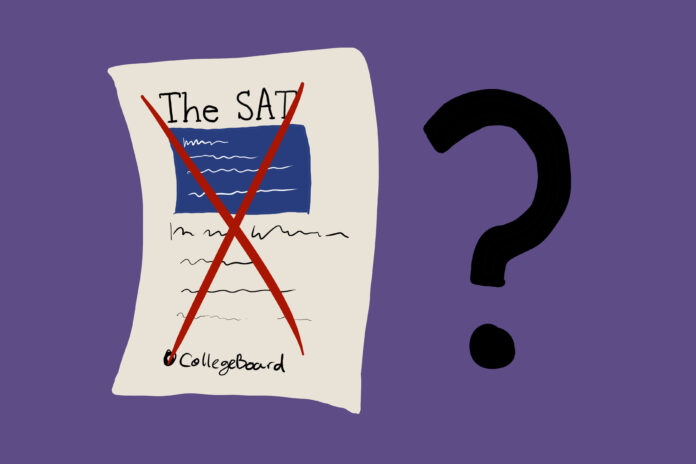Interest groups say SAT, ACT tests discriminate on basis of race, disability, wealth
A letter sent to the UC Board of Regents on Oct. 29 and signed by several low-income student advocacy groups, including the Compton Unified School District, demanded the removal of SAT and ACT requirements from the UC application. The letter claimed that the standardized testing requirement on the application discriminates based on race, disability and wealth. The groups that signed on requested a meeting with the UC Regents within ten business days, stating their “hope that litigation is unnecessary.”
The letter comes in light of the Regents’ general board meeting in mid-September, at which time a discussion on the impact of the standardized testing requirement on the application was first brought up.
In April of this year, the academic senate assembled a standardized testing task force as part of an effort to decide whether the UC would continue to include a request for SAT and ACT scores on its applications. The task force, chaired by Dr. Henry Sanchez of UCSF, has 17 UC professors from a variety of fields on the committee, as well as one student representative. They meet approximately once a month and often ask experts on standardized testing to speak at these meetings.
There are a variety of different courses of actions the task force could recommend: all or part of the standardized testing requirement may be eliminated, the tests may be made optional or different tests, such as the Smarter Balance Assessment Consortium may instead be used for admissions.
The task force is focused on current UC testing practices and assessing whether or not these practices provide an adequate assessment of applicants in the holistic review process. The task force will also be looking into how these testing practices are affecting the diversity of UC applicants.
The recent letter sent to the Regents claims that current practices violate the California Constitution under the right to equal protection as well as several government codes.
The task force hopes to make preliminary recommendations to the board by Feb. 2020, but the letter sent to the board emphasizes the urgency of the matter. It is unclear when any potential changes would be implemented, but members of the Regents hope to make changes soon.
UC Regent Eloy Ortiz Oakley, who is also the chancellor of California Community Colleges system, commented on the potential benefits if the test requirements were removed from the application process in an interview with The California Aggie.
“The sooner the better,” Oakley said. “We have a lot of students spending a lot of money on the test prep and if we’re going to make a change they should know when and how we’re going to make the change. Most of the data that’s been clear across the nation [is] that standardized testing like the SAT/ACT say very little about a student’s ability to succeed in college. [It] says more about their wealth or their zip code.”
Jenny Pelliconi, a first-year animal science major, agrees with Oakley’s view, especially given her ACT experience.
“I don’t think I did that well, but I feel like I’m doing really well here,” Pelliconi said. “People are not very good at taking tests sometimes, it’s a certain skill and some people don’t have that, even if they are successful.”
The numbers suggest that any decision made by the UC will have a widespread impact as the system is widely regarded as one of the best public higher education systems in the country, bringing in 176,695 freshman applicants across all UC campuses this year.
If the UC were to eliminate the SAT and ACT requirement, it would be joining thousands of colleges across the U.S. that have already done so, including the University of Chicago and the University of San Francisco.
Though the board is focusing on admissions-based exams at the moment, other standardized tests, such as the Advanced Placement exams that many high school students take after the completion of an AP course to gain college unit credit, may also be assessed by the board in the future.
Regardless of the outcome, there was a general consensus among the Board of Regents that an evidence-based decision will be of the utmost importance.
“We’ve been very careful not to insert any prejudgement about what recommendations they ultimately forward to this board,” President Janet Napolitano said during the general board meeting. “Whatever we do will be a national precedent, and so we want to get it right.”
Written by: Lei Otsuka — features@theaggie.org










